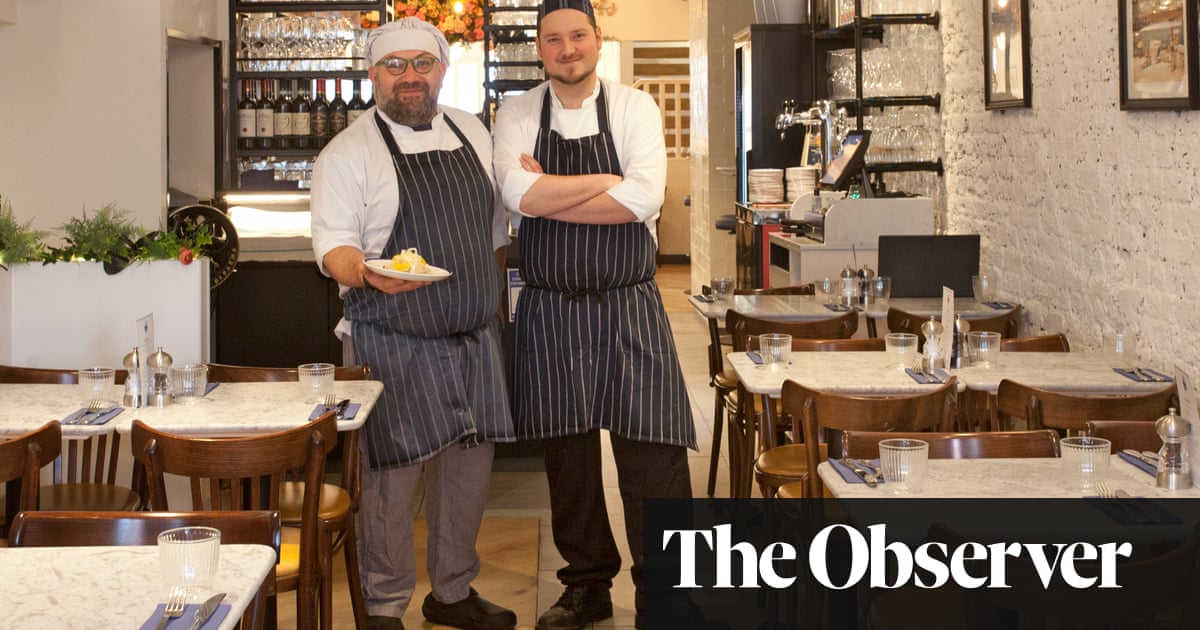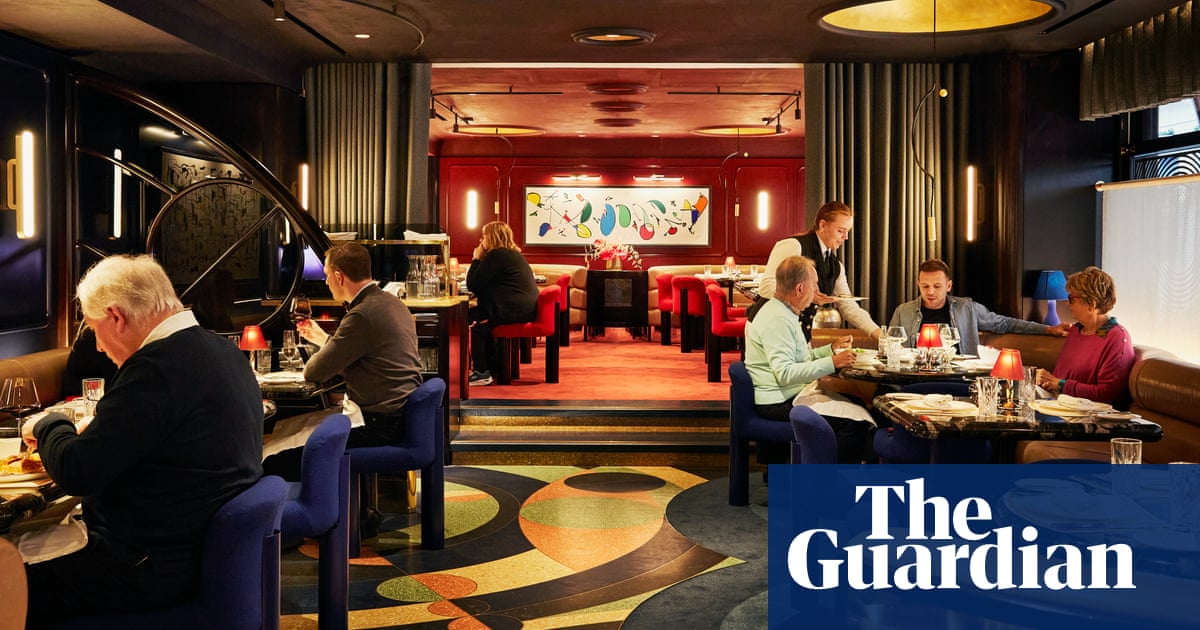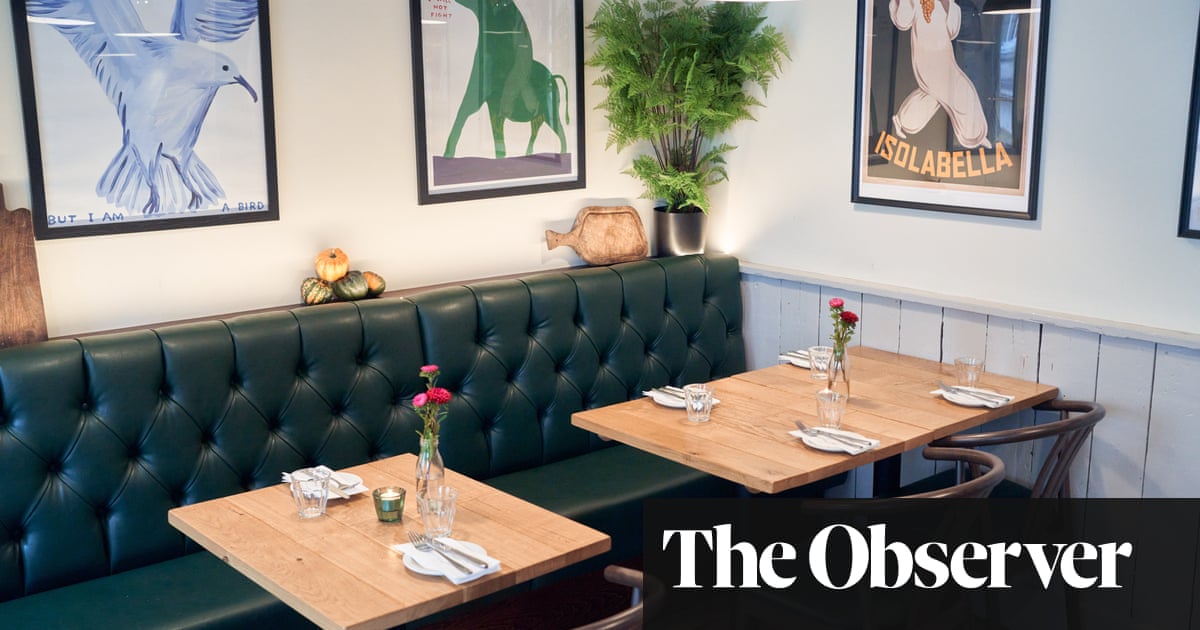
Kolamba, 21 Kingly Street, London W1B 5QA (020 3815 4201). Small plates £4.20-£7.50, large plates £6.10-£13.70, desserts £3.80- £5.50, wines from £26
For those of us who live in cities, one of the most dislocating things about the lockdown was the way it forced us to live in villages. Londoners often talk about the way the capital forms into small neighbourhoods, each akin to a village. We say these things to dispel the notion that it’s a cruel, disorientating sprawl where nobody knows your name. And it’s true. I can tell you a lot about the community that lives in the south London streets I’ve called home these past three decades.
But when I give this speech I am also protesting too much. If I wanted to live in a village, I’d move to one. I live in London’s sprawl for a reason. I love my neighbourhood, but I also crave the noise and clamour beyond it – the one that others who don’t live here might find disorientating. I have a figurative hunger for the rush and clutter of languages and cultures, and a literal hunger for the food. It’s a simple way by which to begin understanding a community.
I love the jerk restaurants of Brixton where I live, where the air always smells of smoke and spice rub and time. I adore the ocakbaşi kebab houses in north London’s Green Lanes, the heart of the Turkish community, where intense men tend to the serious business of turning skewers of the good stuff over smouldering coals. There are the Middle Eastern cafés along the Edgware Road, and the Vietnamese places in Shoreditch and the Portuguese bars that throng South Lambeth Road. This is what makes cities so beguiling.
A mark of that: when the government announced it was now OK to drive wherever you wished to take exercise, a lot of people motored off to woodlands to stroll among the bluebells. Me? I bagged a Zipcar and drove to Soho to check that, like some Brigadoon, London hadn’t disappeared in the Covid mist. The bricks and mortar were still there, but the city wasn’t, not quite. For cities are made by their people and at that point it was like something out of I Am Legend, only without the portentous underscore, the mutants or the wild dogs.
Which is what made an evening at the Sri Lankan restaurant Kolamba on Kingly Street so thrilling. This restaurant drag, just back from Regent Street, wasn’t thronging with the masses, and quite right, too. But there was life here of a particular kind. It was a reminder that London, like so many of our great towns and cities, is only the sum of its people, so many of whom started elsewhere. Here was a team of those people seemingly thrilled to be back doing what they’d only started doing last summer when Kolamba first opened. Mostly, there was a menu of punchy, elbow-in-the-ribs dishes, which can transport you elsewhere. The food draws on the domestic culture of the founders, first-time restaurateurs Eroshan and Aushi Meewella, who grew up in Sri Lanka’s capital, Colombo. Or, as they say in Sinhalese, Kolamba.
The Meewellas have a design background and it shows in a space that has been made over in a style best described as – checks notes – “tropical modernism”. This means it’s a riot of oatmeal. The distressed brick walls in shades of artisanal granola give way to leather banquettes the colour of Jordans Country Crisp and a floor that recalls Kellogg’s Crunchy Nut. (I have just invented this UK breakfast cereal colour chart, and will be patenting it, though I live in fear of the restaurant that demands I reference Limited Edition Unicorn Fruit Loops.) There are big woven hanging lampshades and lighting turned down to that place on the dial marked “moody”. It’s calming, and suits a muggy, damp summer’s evening. We sit outside, just beyond the picture windows that have been completely opened back, and scan the QR code on our phones – a simple way to remove the need for printed menus.
If the room is in muted tones, the food arrives in vibrant gashes of colour. From the section of the menu headed “short eats” – a phrase which makes me grind my teeth, but we live in the age of nice, so we’ll say no more about it – come strips of battered and deep-fried cuttlefish in a sweet, fiery sauce. There’s a lime for squeezing over the top, to up the acidity. The chummily named Aunty Mo’s “chatti” roast makes me want Mo to be my aunty, too. There are pebbles of slow-cooked beef that have then been dry-fried. It’s the very essence of a dry meat curry and lies on a fat tangle of string hoppers – noodles made with fermented rice-flour batter. There is also a deep green coconut sauce for lubrication, dotted with shimmering drops of flavoured oils, so it looks like an edible lava lamp.
From the bigger dishes there are chunks of pork belly braised down in coconut milk, flavoured with lemon grass and curry leaves until sticky and caramelised. Black pepper prawn fry is a mess of powerfully sauced seafood with mandatory head suckage to finish. Ask for extra napkins. You may well find a use for that bottle of hand sanitiser that you have taken to carrying with you when you’re done. Don’t wear a white shirt.
But the standout dish is the seemingly humble dal. It barely needs saying that the simple three-letter word covers a multitude of textures. This one is less soup than fiery stew. It is thick, and the lentils, simmered in coconut milk that has been turned the deepest of yellows by the application of turmeric, have serious bite. If we want more heat, we have a sambal of grated coconut, boosted with chilli and onions.
A lot of these dishes were given a wider audience by the restaurant Hoppers, named after the familiar bowl-shaped pancakes made from that fermented rice-flour batter, which opened not far away on Frith Street in 2015. Perhaps because of this, the menu here makes their small hoppers something of an afterthought. We finish with the mellifluously named watalappam, a set custard of spiced coconut with cashew nuts, and scoops of salted jaggery ice-cream. I have made it clear that it’s a lovely dinner, and a calming, restorative space. But it is something else. Kolamba is the gentle, ocean-deep pulse of the wide and diverse city, reasserting itself.
News bites
Andrew Edmunds, one of the most beloved and venerable of restaurants in London’s Soho, has launched a three-course Date Night box at £55 for two. It’s available nationwide and to be booked in advance for Friday delivery. The meat version might include dressed crab with fennel salad, braised lamb with red cabbage followed by summer pudding; for non-meat-eaters there’s the likes of chickpea and squash hummus with radish followed by crispy polenta and carrots, onions and salsa verde. There’s also a more extensive London-only option. Visit andrewedmunds.com.
So it’s farewell to cronut creator Dominique Ansel who, having made his name in New York, opened a bakery in London’s Victoria in 2016 followed in February of this year by his Treehouse in Covent Garden. The latter closed at the start of lockdown and will not reopen. The bakery operated for takeaway, but that will also close permanently at the end of August.
In cheerier news Corbin & King, operators of the Wolseley and Brasserie Zedel among others, are to re-open the Bellanger site in London’s Islington on August 14. Originally it was a shiny Alsatian brasserie but it closed in 2019 after four years trading. The new iteration will have a general menu of French brasserie classics and pricing which mirrors the much cheaper Zedel. Visit corbinandking.com.












